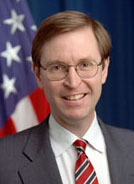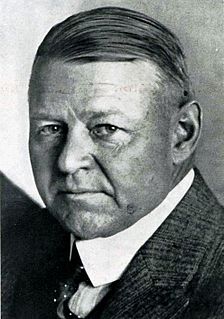A Quote by Paul Krugman
A snarky but accurate description of monetary policy over the past five years is that the Federal Reserve successfully replaced the technology bubble with a housing bubble
Related Quotes
From the Great Depression, to the stagflation of the seventies, to the current economic crisis caused by the housing bubble, every economic downturn suffered by this country over the past century can be traced to Federal Reserve policy. The Fed has followed a consistent policy of flooding the economy with easy money, leading to a misallocation of resources and an artificial 'boom' followed by a recession or depression when the Fed-created bubble bursts.
Transparency concerning the Federal Reserve's conduct of monetary policy is desirable because better public understanding enhances the effectiveness of policy. More important, however, is that transparent communications reflect the Federal Reserve's commitment to accountability within our democratic system of government.
I've not won different awards - many, many times - so luckily I've practiced that whenever you are nominated for anything, you enter into this marvelous, fantabulous bubble called the bubble of nomination. The minute the envelope is opened and your name isn't called out, the bubble bursts. And no one calls you up the next day to say, 'So sorry you didn't win,' or 'You looked gorgeous - nothing. If you win, you get about another 24 hours in that lovely bubble and then - pop - you are slightly wet all over from the bubble and realize that you have to get on with real life.
There is plenty of blame to go around for the U.S. housing bubble, but not much of it belongs to Fannie Mae and Freddie Mac. The two giant housing-finance institutions made many mistakes over the decades, some of them real whoppers, but causing house prices to soar and then crater during the past decade weren't among them.
People at the top spend less money than those at the bottom so when you have redistribution toward the top, aggregate demand goes down. Unless you intervene, you're going to have a weak economy unless something else happens. That something else could be a bubble. The United States tried a tech bubble and a housing bubble, but those were not sustainable answers. So I view inequality as a fundamental part of our macroeconomic weakness.
You can go back to tulip bulbs in Holland 400 years ago. The human beings going through combinations of fear and greed and all of that sort of thing, their behavior can lead to bubbles. And it may have had and Internet bubble at one time, you've had a farm bubble, farmland bubble in the Midwest which resulted in all kinds of tragedy in the early '80s.
In 1977, when I started my first job at the Federal Reserve Board as a staff economist in the Division of International Finance, it was an article of faith in central banking that secrecy about monetary policy decisions was the best policy: Central banks, as a rule, did not discuss these decisions, let alone their future policy intentions.


































